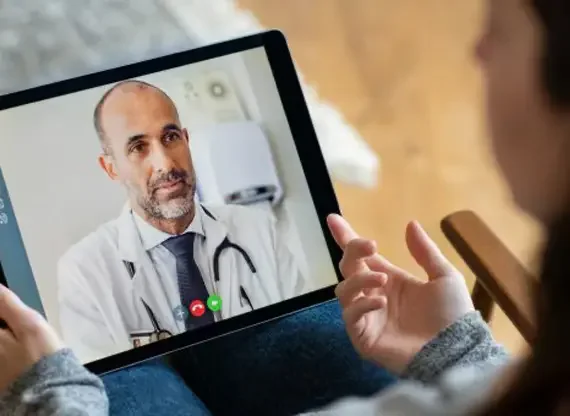
June 10, 2020
The most successful efforts so far show that collaboration is essential. And to that end, health technology companies are key players, helping to connect disparate resources, services, and information.
The groundwork laid for more than 15 years by the digital health sector has suddenly become a critical asset. Here we’ll explore how virtual care, behavioural health, and data uses are responding to the pandemic and their lasting impact long after the crisis has been abated.
Supporting virtual care -- Telehealth and remote monitoring solutions are major assets at a time when non-essential visits to the doctor are to be avoided. From preventative health services to mental health therapy, primary care and follow-up appointments, the new best practice is to take these appointments online. Video or telephone visits, however, are only the tip of the iceberg.
The maturity of the remote monitoring market is allowing patients to stay home, while continuously monitoring their health. On- and off-the-body sensors like pulse oximeters, continuous glucose monitors, ECG monitors, and smart inhalers like those from Propeller Health help manage chronic conditions while also flagging worsening conditions before symptoms escalate. One concern is that we’ll see a post-COVID surge of chronic disease flare-ups due to the lack of daily management while the crisis persists – a prediction that further incentivises getting the right tools to the right populations, in their homes.
Outside the home, remote monitoring is increasingly valuable. Livongo received FDA clearance to deploy its diabetes monitoring devices within the hospital setting, which is helping to limit physician interactions with patients. For care providers who must routinely monitor vital signs, this is both safer and saves on the limited supply of Personal Protective Equipment.
Digital behavioural healthcare -- Digital behavioural healthcare encompasses everything from therapy delivered by a clinician in a secure virtual environment to digital self-care apps that people can use to support their mental wellness on their own – and a myriad of solutions in between. It’s a field becoming increasingly useful as the stress of COVID-19 weighs on our global population.
Ginger Health provides mental health support with self-help tools and in-app coaching. If necessary, users can be connected to a licensed therapist. Another option called Supportiv offers text-based, peer-to-peer support groups and has gained traction with male users who are more impacted by the stigma associated with traditional therapy.
A surge in downloads of mental health apps in April underscores consumer need, but with its new popularity so come questions about regulation. Privacy and security are forefront as are questions about formal research and validation. The FDA has fast-tracked approval to help, but oversight is still needed.
Health data heroes -- Ingenuity asks that people use what they have and, in the case of many health tech companies, that means data. Digital health companies have become adept at not only collecting data, but also working with health systems, healthcare payors, and government organisations to combine their data with clinical and claims data to create new value. During the pandemic, digital health companies have been able to pivot quickly to find ways to leverage their data science competency to serve the greater good.
Castlight Health, which works with health plans, health systems, and large employers, created the most comprehensive directory of testing sites in the US and has now provided further analysis of that data to identify areas where no testing is available.
Evidation Health is a health data science start-up that usually works with life sciences companies to augment clinical trials with data collected from smart devices, sensors, and wearables in the home. But in recent months it launched a COVID-19 Pulse Report that includes behavioural data and sentiment to how people are treating COVID-19 in the real world.
It has taken a global emergency to highlight some of the most severe social disparities and some of our greatest humanitarian collaborations. As global citizens, we share in both the power and the responsibility of carrying ourselves and neighbours over the finish line. In the meantime, we will continue to innovate around care coordination and resource management and share in any immediate relief that can be assembled.
At G4A, we believe in the best of humanity and sustainable healthcare systems where we’ll pick up the pieces of what’s left and with them build more equitable systems, more connected technologies, and more empathic processes across the spectrum of care than healthcare has ever seen before
To start our journey, we have launched a new series of challenges we will tackle this year that specifically focus on the most pressing issues in healthcare today.

Sophie Park,
Chief Strategist, Digital Health Partnership